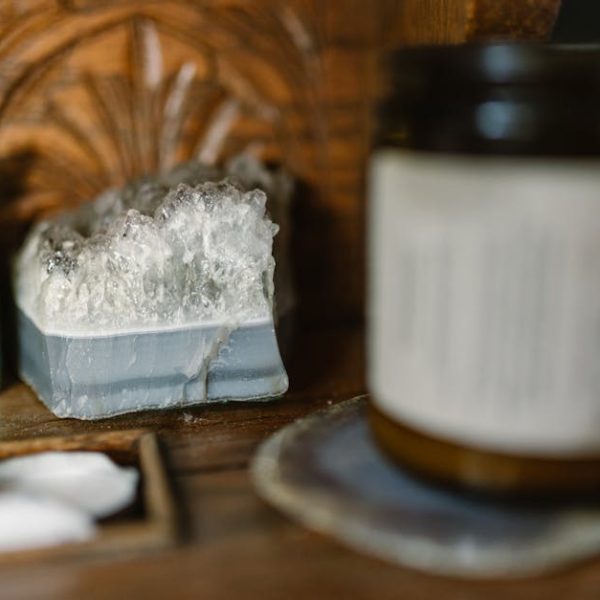Every homeowner has faced pest problems in one form or another, and sugar ants are among the most prevalent. The mere sight of these tiny bugs scurrying about your kitchen cannot only make you cringe but also often leads to an unwanted and unending chase. In this article, we will be going through four effective ways you can treat and prevent sugar ant infestations in your kitchen, including understanding their behaviors, implementing rigorous cleaning procedures, using commercial ant control products, and trying natural home remedies.
Understanding and Identifying Sugar Ants
Sugar ants, derived from a general term for a variety of small ants that are attracted to sweet food, are primarily nocturnal creatures. They can be found crawling around your home searching for food and water, with the kitchen being their favorite hangout. Their size, color, and the fact that they tend to march in a straight line make them identifiable. However, it’s not just their conspicuous behavior that helps in their identification but their affinity for sweet, sugary substances like leftover food spills, fruits, juices, and soda also play a big part.
Here are key signs that you have a sugar ant infestation in your home:
- Spotting a line of ants moving in and out of your kitchen.
- Seeing them crawling around your food storage.
- Finding a colony near a source of spilled sweet food or beverages.
⚙ Pro tip: Tracking the line of sugar ants can help you understand their patterns and locate their nest, making your extermination efforts more successful.
Cleaning and Preparation as the Key to Ant Control
Eliminating sugar ants begins with denying them food and water – their primary reasons for invading your kitchen. Simple steps such as sweeping, wiping the surfaces clean after cooking, and promptly cleaning up food and juice spills significantly reduce their nourishment sources, leading to their eventual exit.
Here are some effective cleaning strategies to combat sugar ants:
- Cleaning your kitchen surfaces, especially around the cooking area, after every meal.
- Emptying and cleaning trash cans regularly.
- Storing food in airtight containers.
- Repairing any leaking taps and pipes to deny them a source of water.
For instance, a clean, well-maintained kitchen with all food properly stored and no water leaks lowers the chance of attracting sugar ants as compared to a kitchen with easily accessible food sources and moisture.
Commercial Ant Baits and Traps
Treating sugar ants infestation can sometimes require more than just a clean kitchen—especially if they have established a nest within your home. This is where commercial ant baits and traps come in. These products are designed to attract ants using a combination of food, sugar, or other attractants mixed with a slow-acting poison. The ants carry this bait back to their nest, poisoning the rest of the colony in the process.
Pros of commercial ant baits and traps:
- Suitable for long-term control of ant colonies.
- Easy to use and requires minimal maintenance.
Cons:
- Potential risk of pets or children coming into contact with the poison.
- May take time to see the full effects.
Recommended Products:
- Terro Liquid Ant Bait
- Amdro Ant Block
Trying Natural and Home Remedies
Using commercial ant baits and traps is undoubtedly effective – but there are also home remedies that can tackle a sugar ant infestation. Using ingredients readily available in your kitchen like vinegar, cinnamon, or coffee grounds, these organic solutions are safe, affordable, and easy to implement.
Here are some popular natural remedies:
- Citrus peel: Ants dislike the scent of citrus. Leave citrus peels around ant-prone areas.
- Vinegar: Mixing equal parts of white vinegar and water makes a great ant repellent spray.
- Cinnamon: Sprinkle ground cinnamon where you see the ants entering your home.
Safety precautions and tips when using home remedies:
- Always test the solution in an inconspicuous area first to ensure it doesn’t discolor or damage surfaces.
- Keep children and pets away while you’re applying these remedies, as they could cause irritation if touched or ingested.
Professional Pest Control Services
Sometimes, despite your best efforts, sugar ants continue to be a nuisance. That’s when professional pest control services come into the picture. A pest control professional brings expertise and specialized equipment to quickly and effectively handle the infestation. Their services may seem costly initially, but they can save you time and prevent future infestations.
To make an informed decision, let’s compare DIY methods with hiring professionals:
DIY Pest Control
- Pros: Cost-effective, easy to implement, and control over materials used.
- Cons: Time-consuming, requires repeated efforts, and potential risk of incomplete extermination leading to recurring infestations.
Professional Pest Control
- Pros: Fast and effective, handles infestations of any size, and reduces chances of future infestations.
- Cons: More costly than DIY methods, may involve potent chemicals, and scheduling appointments can be inconvenient.
⚙ Pro tip: Before hiring a professional pest control service, research about their reputation, the services they provide, their costs, and their safety procedures. Remember, a good pest control service should also provide guidance on preventing future ant infestations.
In conclusion, don’t let sugar ants ruin your peace and quiet! By understanding their behavior, keeping your kitchen clean, using commercial baits and traps wisely, experimenting with home remedies, and knowing when to call in the professionals, you can keep these sweet-loving critters at bay! Stay vigilant, stay proactive, and make your kitchen an ant-free zone!
Key Takeaway:
- Sugar ants infest kitchens due to their affinity for sweet substances. Identifying them and understanding their habits is the first step towards their control.
- Cleaning and preparing your kitchen to deprive sugar ants of food and water is crucial in reducing their presence.
- Commercial baits and traps are effective in dealing with persistent infestations, provided homeowners pay attention to their pros, cons, and safety considerations.
- Home remedies such as citrus peel, vinegar, and cinnamon can also serve as safe, affordable, and easy-to-implement solutions against sugar ants.
- Hiring professional pest control services can be a valuable option if self-implementation methods fail to eliminate the infestation.
Don’t let the tiny sugar ants invade your peace. By understanding their habits and employing the right methods, you can successfully combat an infestation and maintain an ant-free kitchen. Stay proactive and keep your kitchen clean, this practice goes a long way not just for sugar ants but for any pest control.
FAQs
Q: How can I prevent sugar ants from establishing a colony in my kitchen?
A: Keep your kitchen clean. Regularly empty and clean your trash cans, store food in airtight containers, and fix any leaking taps and pipes. Sugar ants are attracted to food and water, denying these essentials can help deter them.
Q: What should I consider when using commercial ant baits and traps?
A: Make sure that the bait or trap you choose is safe to use, especially if you have children or pets in your home. Always follow the manufacturer’s instructions for use and placement.
Q: How effective are natural home remedies for sugar ant infestations?
A: Some home remedies, like citrus peels, vinegar, and cinnamon, are quite effective but may take longer to see results compared to commercial solutions. Please remember to test any solution on an inconspicuous spot first to ensure it won’t damage your surfaces.
Q: How do I decide if I need professional pest control services?
A: If your DIY efforts aren’t helping, or if the infestation is large, you might need to turn to a professional. Consider their reputation, cost, the chemicals they use, and their overall customer service before making a decision.
Q: Can sugar ants harm me or my family?
A: While sugar ants are mostly a nuisance, they can potentially contaminate food. It’s best to deal with an infestation as soon as possible to keep your kitchen clean and safe.
We hope you found these tips useful! Don’t forget to share this article with your friends and explore more posts on our website for more helpful information.






